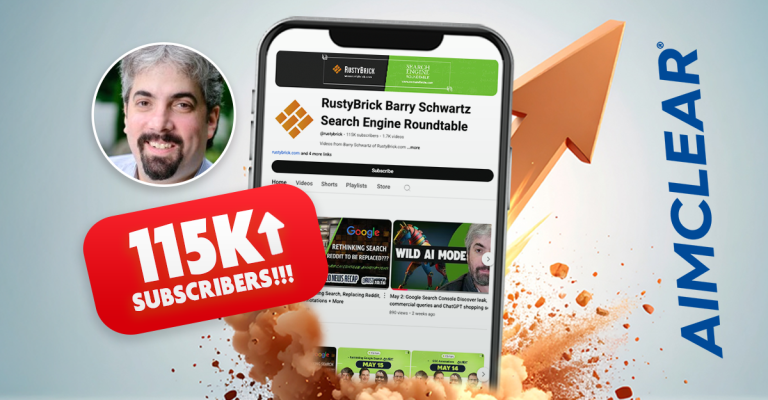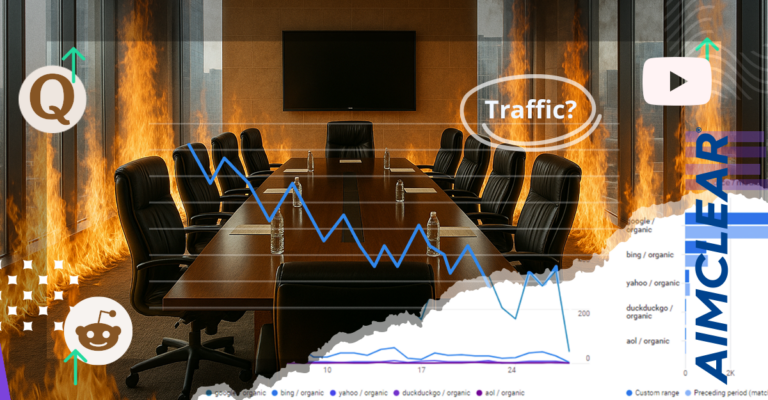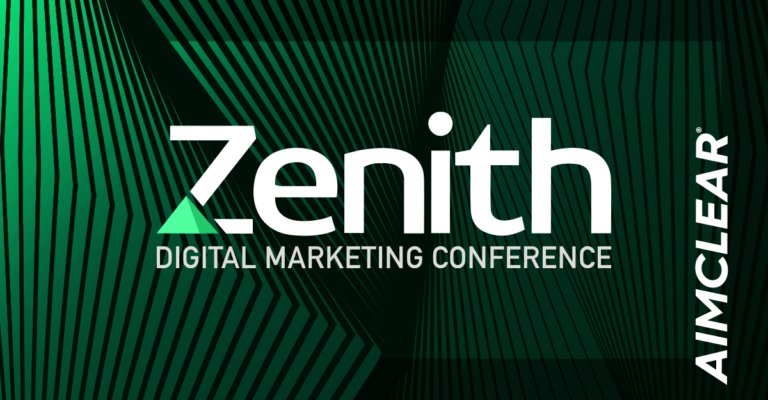
The undeniable significance of linking within the black box algorithm of the major Search Engines has been the subject of at least half the chatter and controversy in the search marketing world. Remarkable research efforts, branching theories, and “under the hood” tools have sprung from the pure need to demystify the role of links in the SERPs.
Discover the Power of Linking: Link Building Basics at SearchEngineStrategies New York 2009 represented the first major instance of both search marketers and search engine representatives (Live Search, Yahoo!, and Ask.com) converging in one session to give polar perspective on links. Because of this, it was essentially two sessions in one, and AIMCLEAR will be breaking coverage up into two parts.
Chris Boggs moderated this session, noting the historical importance of this meeting of the minds on links.
Presenting first was Sasi Parthasarathy program manager for Microsoft Live Search. It is Sasi’s intention to give us the search engine perspective, a view of how Live Search sees links and how they treat them.
Live Search’s stance is that they don’t care so much about your link building technique but about your linking intention. If you have good content and good links you’ll be fine.
Sasi see’s link building as a chance to build your reputation on the web, because your website is an asset, link building is an asset building exercise. Sasi says not to expect results overnight, build over time. He remarks that content is still king, high quality content, should of course attract users and good links naturally.
The Live Search engine looks for high quality links from authorities or experts in your field. He gave the example, if you are building a website about feline care, it would be desirable to get a link from catvets.com , the site for American Association of Feline Practitioners. Think about the sites that link to you; how do they relate to your content? Live Search places great deal of importance on content.
What does Live Search perceive as spam?
Anything done with the intent to rank higher by manipulating the search engine will be perceived as spam
Live Search simply wants to deliver the best content to the users, anything to disrupt this will be neutralized or punished. Some examples of disruptive or suspicious behavior included:
- If the number of links you receive jumps from 100-10000 in a week, not a natural attainment of links overtime
- If Live Search sees a lot of links from blog comments or irrelevant sites; flagged for closer review
- Hidden links are forbidden
Sasi advocates using the Live Search Webmaster Tools Link Analysis. Use this tool to look at your in-links, and out-links for spam sites or malware infected sites. Their Webmaster Tools page score is ranks links from 1-5 to tell you 5 being a good link, and 1 being poor.
You can also use the Link Analysis tool to look at the reputation of sites that are linking to you. Sasi suggests keeping track of all news about your site, know specifically which authors write about you and now you know who to ping for future PR.
Up next was Sharad Verma, senior product manager at Yahoo! Search.
Sharad relays a story of talking to someone from AIG, who was wondering what SES NY was about. Sharad let him know it was about best practices for your website, site optimization, ways to receive to optimum links. The AIG employee seemed most highly interested in linkbuilding (maybe for a new career).
How Do Search Engines Use Links?
If you site has no links – search engines don’t know about you
Few links – search engines know you exist but they may not crawl you, a small site would then need to submit a sitemap
Some links – you might be crawled but not indexed
Some more links – search engines crawl and index you, but you may rank low
Enough Links – you may start getting ranked in the top 10
More than enough links – helps in anchor text variety and ranking for different keywords
Links on Steroids – no effect, your wasting time and efforts
*Sharad noted in the Q & A session that “few links” and “enough links” are relative to a number of factors and not limited to a specific link count
How Do Search Engines Treat Links?
- Authority of a link source is important, they need to have authority
- Topical context is extremely important. For example, an auto parts store doesn’t get links from a lipstick site
- Where is the link placed? In the header, footer, ads?
- External links or internal? Externals links have less bias
- Value to user – ultimately you want users to navigate to the link your placing on your site. If you take care of the user everything takes care of itself.
How Should You Think About Link Building?
- Look for sites with traffic – links should then follow
- Look for links that are authoritative and contextually relevant
- Use descriptive and diverse anchor text in your links
- Use RSS for recurrent updated content on your site
- Be sure to watch your links as well
- Watch for broken sources
- Deep linking vs home page linking
- “Nofollow links”
- Link accessibility – ajax/javascript not crawlable
Sharad brought up the famous Link Building 101 chart to illustrate some of his points
- He says forums are good to get noticed, but know that many are nofollow
- He advocates legitimate link bait, useful content, avoid sensationalism
- Paid links and trade links are considered inherently bad, just watch the signal to noise ratio, he asks that you please be mindful of context
What is Link Spam?
Sharad gave a general example: If your site is a good site that gets links from other good sites, but your site changes hands and then your site starts to get links from a lot of malicious sites, you might get delisted. Say your site changes hands again and tries to do better, but you still go after bad links, your site ends up in a link limbo.
In regards to link spam/link exchange sometimes it works, but most times it’s just spam. Guestbooks are an easy place to get spam, watch for injected link spam in your comment system. He says Yahoo is good at ignoring links from User Generated Content portions of websites (interesting).
What Kind of Things Can You Do?
- Again, monitor a lot, use Yahoo Link Explorer, track your backlinks
- Don’t fall for link exchange spam and scams
- Don’t link to suspicious site
- Make sure you nofollow links that you have no control over
Sharad lets us know that if you’ve done all of these and still receive poor results, you can fill out a Yahoo webmaster report form and have Yahoo take a look at your site.
Chris Boggs found it interesting that Yahoo revealed that the number of inbound links helps them determine how often they crawl.
Speaking next was Ankur Choksi who is the director search technology for Ask.com.
Why Are Links Important?
- Links are the way that people traverse the web. Imagine no links between pages, typing each URL by yourself would be a painful experience.
- They are citations and referrals from one page to another, links are used as one of the important signals in ranking.
- People want to link to good quality content to enhance their user’s experience.
How Do Links Influence Rankings?
Ask.com looks at link quality, their Expert Rank algorithm looks at authoritative and topical content, and also at anchor text.
Ankur ponders, if you break your leg, you go to health authority figure like a physical therapist or doctor, well Ask.com takes this approach to links. They ask who are the experts/or community for your site’s topics?
Quality of links are more important than quantity, a large quantity of links from low quality sites will not contribute to the page. Again, the best way to get high quality links is to create high quality page content. As always, make sure your outgoing links point to relevant resources. Don’t inadvertently hurt your site!
Ankur says that anchor text really represents the views of other people about your page. Irrelevant anchor text may devalue the link, and anchor text is also weighted based on link quality.
Things to Avoid With linking:
- Do not buy or sell links
- Excessive links between sites, it can look like a link farm, you can even be blacklisted
- Don’t have unrelated links on your page
- Don’t serve links on your page that are optimized for search engines, no cloaking
Ankur says that if you avoid these and focus on content, your site will do well.
This concluded the Search Engine Representative portion of the presentation, and it was now time for the Search Marketers to weigh in on this linking business. Would they agree with the engines that “content is king”? In their experience, has “just focusing on the user” made great rankings and pulled significant traffic? Part 2 of this post will cover linking perspectives and tactics from the search marketers








